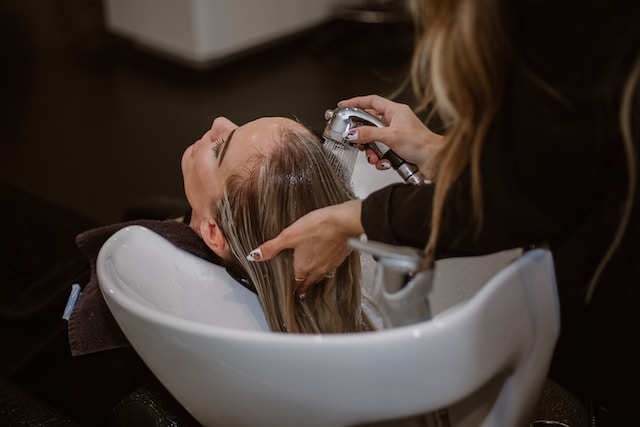Introduction: Daily shampooing has become a common practice for many individuals in their quest for clean and fresh hair. However, concerns have arisen about whether this frequent washing routine is actually stripping the hair of its natural oils. In this article, we will explore the impact of daily shampooing on the natural oils of
Introduction: Daily shampooing has become a common practice for many individuals in their quest for clean and fresh hair. However, concerns have arisen about whether this frequent washing routine is actually stripping the hair of its natural oils. In this article, we will explore the impact of daily shampooing on the natural oils of your hair and provide insights into finding a balance that maintains cleanliness without compromising the health and vitality of your locks.
- Understanding Natural Hair Oils: Your scalp produces natural oils, known as sebum, which play a vital role in maintaining healthy hair. Sebum acts as a protective barrier, keeping the hair shaft lubricated and moisturized. It helps to prevent dryness, frizz, and breakage, promoting overall hair health and shine.
- The Role of Shampoo: Shampoo is designed to cleanse the hair and remove dirt, excess oil, and product buildup. It contains surfactants that attract and remove these substances, leaving the hair feeling clean and refreshed. However, the surfactants in shampoo can also strip away the natural oils from the hair, particularly with frequent use.
- The Impact of Daily Shampooing: a. Dryness and Frizz: Daily shampooing can lead to the removal of the natural oils that provide moisture to the hair. This can result in dryness and frizz, making the hair appear dull and lifeless. Without the natural oils, the hair becomes more susceptible to damage and environmental factors.
b. Increased Oil Production: Paradoxically, frequent shampooing can stimulate the scalp to produce more sebum as a compensatory mechanism. When the scalp senses that its natural oils have been removed, it may try to replenish them at an accelerated rate. This can lead to an oily scalp and greasy-looking hair, creating a cycle of excessive washing and increased oil production.
c. Scalp Irritation: Daily shampooing can also cause scalp irritation, particularly for individuals with sensitive skin. The harsh detergents present in some shampoos can disrupt the scalp’s natural balance, leading to dryness, itching, redness, and even conditions like dandruff or dermatitis.
- Finding the Right Balance: a. Hair Type and Lifestyle: Hair type and lifestyle factors play a significant role in determining how often you should shampoo your hair. Individuals with oily hair or those who engage in activities that cause excessive sweating may need to shampoo more frequently. On the other hand, those with dry or curly hair may benefit from reducing the frequency of shampooing to preserve natural moisture.
b. Listen to Your Hair: Pay attention to your hair’s condition and adjust your washing routine accordingly. If your hair feels greasy and weighed down, it may be a sign that you are over-washing. Conversely, if your hair feels dry and lacks luster, it may indicate that you need more moisture and should decrease your shampooing frequency.
c. Alternate Washing Methods: Consider alternative methods to keep your hair clean between shampooing sessions. Dry shampoo can help absorb excess oil and refresh the hair without the need for water. Co-washing, using conditioner instead of shampoo, can also provide a gentle cleansing while retaining moisture.
d. Use Mild Shampoos: Opt for mild, sulfate-free shampoos that are formulated to be gentle on the hair and scalp. These shampoos are less likely to strip away the natural oils excessively, helping to maintain a healthier balance.
Conclusion: Daily shampooing can strip the hair of its natural oils, leading to dryness, increased oil production, and scalp irritation. However, finding the right balance between cleanliness and preserving the hair’s natural moisture is crucial. Consider your hair type, lifestyle, and listen to your hair’s needs. Adjusting your washing routine, incorporating alternative cleansing methods, and using mild shampoos can help maintain a healthy scalp and nourished hair, promoting its overall health and beauty.

















Leave a Comment
Your email address will not be published. Required fields are marked with *